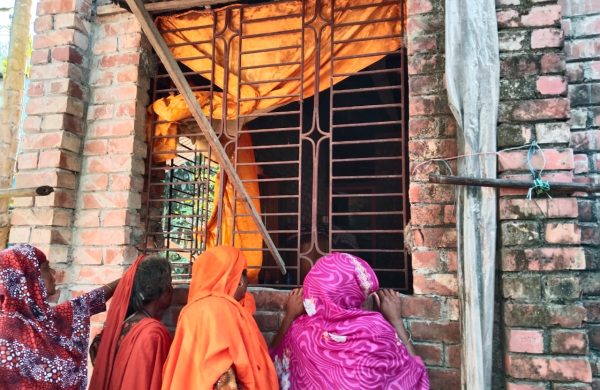BNP calls on India to reconsider waqf law
- Update Time : Sunday, April 6, 2025

Staff Correspondent:
Salah Uddin Ahmed, a member of the Bangladesh Nationalist Party (BNP)’s National Standing Committee, has called on India to reconsider the recently passed Muslim Waqf (Amendment) Bill, 2025.
Speaking at a press conference, he said that an analysis of the bill’s various provisions reveals attempts to curtail the rights of India’s minority Muslim population and introduce discriminatory practices.
The press conference was held on Sunday at the BNP Chairperson’s office in Gulshan, Dhaka.
He noted that Muslims in India, as well as several Muslim organizations, have reacted strongly to the bill, calling it unconstitutional and politically motivated.
Salah Uddin said: “Waqf is an ancient Islamic institution of charitable endowment. Through waqf, individuals permanently donate property—typically land—for religious or public welfare purposes. Such waqf property cannot be sold or transferred to anyone.”
He continued: “This law provides ample opportunity for misuse against the religious traditions, rights, culture, and interests of India’s nearly 200 million Muslims, who constitute around 14% of the population. It could lead to a disastrous impact on the management of Islamic religious institutions. Of the approximately one million acres of land under waqf boards in India, most are used for public welfare purposes such as mosques, madrasas, graveyards, and orphanages.”
“The inclusion of non-Muslim members on the management boards under the new law has sparked controversy. This move could undermine the constitutional rights of Muslim citizens. Any state-level initiative that interferes with the religious rights of Muslims and fosters discrimination could threaten communal harmony—something we believe should be avoided.”
The BNP leader added: “In India, there are no such instances of members of other faiths being included in legal or religious bodies pertaining to other religions. Therefore, this law stands out as discriminatory. The changes introduced in the new bill could jeopardize the future of mosques and other Islamic religious institutions established on waqf land centuries ago.”
He emphasized: “Granting authority to non-Muslim members for the management and administration of these properties constitutes a direct interference in the religious rights of Muslim citizens.”
He further said: “According to organizations like the All India Muslim Personal Law Board, this law contradicts the fundamental spirit of the Islamic Waqf system. They believe that waqf boards should be managed solely by Muslims and have expressed that this law amounts to direct interference in the religious rights of Muslim citizens.”
Salah Uddin concluded by saying: “India is a large democratic country. We hope that as a guardian of the rights of people of all religions, the Indian government will reconsider this law while upholding the spirit of democracy. We believe such a step would play a historic role in preserving regional communal harmony.”
















